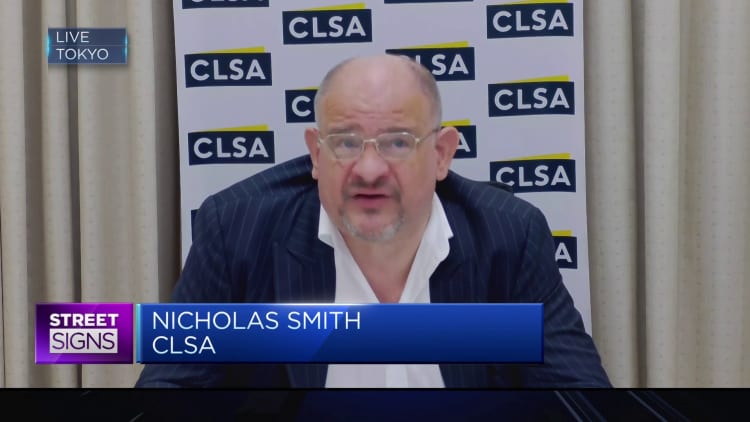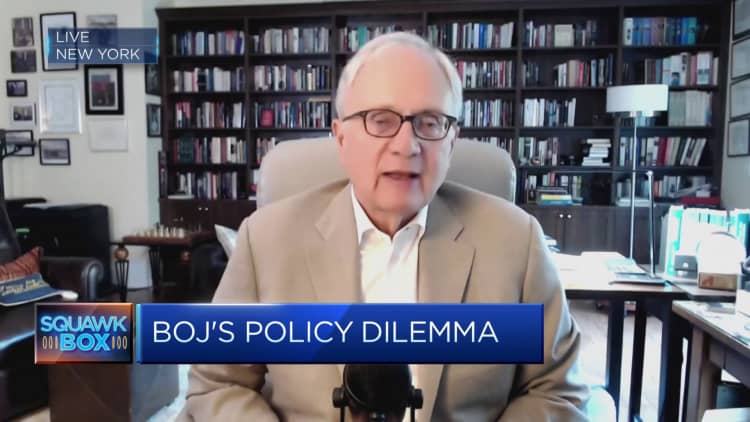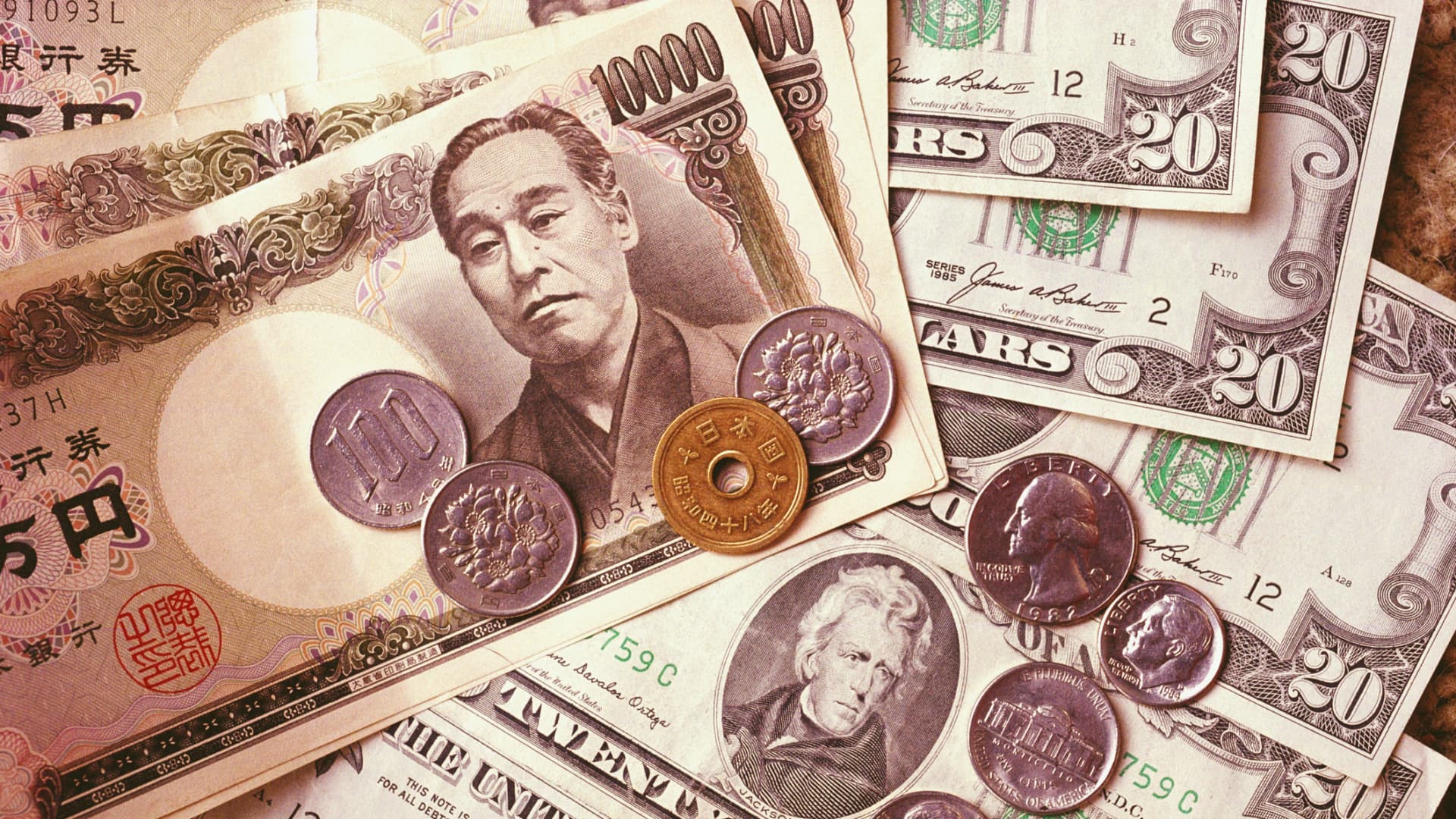An undated photographic illustration of Japanese yen and the U.S. dollar bank notes.
Glowimages | Glowimages | Getty Images
The Japanese yen weakened to levels not seen in 34 years against the U.S. dollar on Monday, only to rebound and likely clock its best week in more than a year. Here is what happened.
The yen touched 160.03 against the greenback on Monday, for the first time since 1990, but strengthened to 156 levels later that day amid speculation about an intervention by Japanese authorities.
On Wednesday, the currency strengthened by more than 2% to trade near 153 against the dollar, which is also likely to have been caused by an intervention, according to some market analysts.
Japanese authorities are yet to issue an official statement confirming their role in propping up the currency.
“The government has been refusing to disclose whether they’ve been intervening or not, but I don’t think many people have any doubts,” Nicholas Smith, Japan strategist at CLSA, told CNBC.
The yen is now trading at 152.90 against the dollar.

Analysts at Bank of America Global Research said the size of the first suspected intervention could have been between 5 trillion and 6 trillion yen ($32.7 billion to $39.2 billion), based on Bank of Japan data.
BofA Research also said that the size of the second likely intervention could have been smaller than the first.
The line in the sand
The yen had lost 7.3% as of Monday’s low, since the Bank of Japan’s historic meeting in March, when it ended the world’s only negative rates regime.
But the first suspected intervention came only after the currency hit 160 against the dollar.
The yen had also been hit by the continued strength in the dollar amid watered down expectations for early interest rate cuts by the Federal Reserve. Recent U.S. inflation readings that came in hotter than expected underscored the difficulty the U.S. central bank faces in tackling stubborn inflation.
In the last few decades, while other global central banks have tightened their policies, Japan had maintained its ultra-loose policy, leading to concentrated carry trades in the Japanese yen.
A carry trade is a strategy where traders borrow in low interest rate currencies such as the yen to invest in high yielding assets in another currency, thus profiting from the rate spread.
What’s next?
The BOJ held its benchmark policy rate unchanged at 0%-0.1% in its most recent monetary policy meeting on April 26. BOJ Governor Kazuo Ueda acknowledged volatile yen moves at a press conference later that day. While he reassured markets that the authorities were watching, he did not highlight any actual steps that might be taken to tackle the volatility.
Market participants believe Japanese authorities will intervene further to prop up the currency.
“I think the Bank of Japan is going to probably be forced to continue to intervene,” Edward Yardeni, president & chief investment strategist at Yardeni Research told CNBC. “And I think that stays pretty much a problem for Japan, rather than having any major global consequences.”

HSBC said that the weakness in the yen plays a key role in “reflating” the economy, a goal that the BOJ expects to achieve this year.
“After years and years of losing competitiveness, exporters are at last feeling the lift from exchange rate realignment. And, one might suspect, an even weaker exchange rate, and for longer, may be needed, to turn the lift into an enduring manufacturing renaissance,” Frederic Neumann, chief Asia economist at HSBC wrote in a client note.
Neumann said the weaker yen is boosting the service sector in Japan, via tourism, and in turn helping lift inflation expectations.
“A weaker yen, in other words, is not entirely unwelcome, as long as the decline is orderly. Thus, don’t expect the BOJ to rush into aggressive tightening just because the exchange rate is wobbly,” Neumann added.

